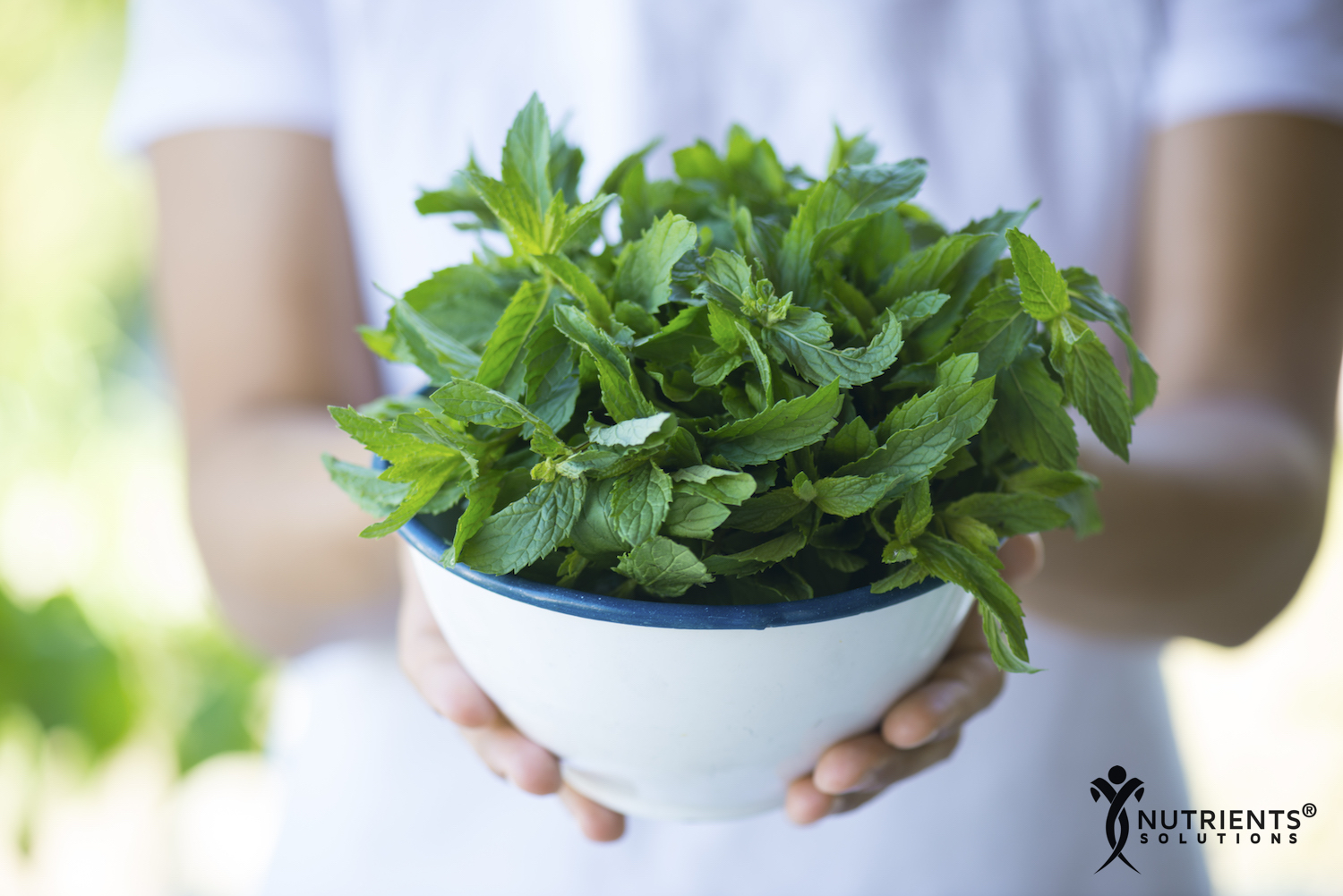Wellness Demystified: We Can Help You Discover Optimum Health
The Magic of Peppermint: Treat Everything from Stomach Ache to Nausea

Peppermint is popular in herbal medicine, and the peppermint plant is believed to have healing properties. People utilize peppermint for a variety of reasons, and the research has begun to explore the benefits associated with it. This article details the proven benefits linked to peppermint, which include treatment of gastrointestinal distress, pain relief, a boost in athletic performance, and alleviation of nausea. The article cites the results of scientific studies to support all claims that it makes.
The peppermint plant is popular in the arena of herbal medicine and is valued for its medicinal properties. People utilize peppermint to treat a variety of health conditions and to promote mental and physical wellness. Researchers have conducted experiments with peppermint to provide evidence that this plant truly does have medicinal value. Their studies indicate that peppermint can relieve gastrointestinal distress, treat pain, and even enhance cognitive and athletic performance.
Peppermint for Gastrointestinal Distress
People commonly use peppermint to soothe gastrointestinal distress, and the research indicates that peppermint is an effective treatment for irritable bowel syndrome. Researchers from The University of Western Ontario and the University of California San Diego have reviewed the results of nine different studies concerned with the use of peppermint for the treatment of irritable bowel syndrome. The results of their review, which were published in a 2014 edition of the Journal of Clinical Gastroenterology, found that peppermint oil was significantly more effective than a placebo was for alleviating general symptoms associated with irritable bowel syndrome; it was also more effective for treating abdominal pain [1]. Based on the results of this review, peppermint can play a critical role in the treatment of irritable bowel syndrome, providing relief to patients experiencing stomach discomfort and other related symptoms.
Headache Treated with Peppermint Oil
In addition to its ability to treat irritable bowel symptoms, peppermint oil has demonstrated effectiveness for relieving headaches. A 1996 study in the international neurology and psychiatry journal Der Nervenarzt, titled “Effectiveness of Oleum Menthae Piperitae and Paracetamol in Therapy of Headache of the Tension Type,” compared peppermint oil to both a placebo and the pain medication acetaminophen for the treatment of tension headaches. Study results showed that 15 minutes after application to the forehead and temples, peppermint oil decreased the severity of headaches significantly when compared to a placebo. Peppermint was also found to be equally effective to acetaminophen [2]. This indicates that peppermint provides a natural alternative to over-the-counter pain medications for the treatment of headache.
Peppermint and Menstrual Pain
Peppermint isn’t just effective for relieving headache pain; it also seems to be useful for treating pain associated with menstrual periods. Researchers from Shahid Beheshti University of Medical Sciences, Azad University of Kerman, and the Alborz University of Medical Sciences in Iran conducted a study with peppermint for inclusion in a 2016 edition of the Journal of Herbal Medicine. Participants in their study were experiencing menstrual cramps; one group received peppermint capsules, whereas another group took a placebo. Study results showed that the peppermint was significantly more effective for reducing pain severity [3], suggesting that peppermint is a useful treatment for menstrual pain.
Analgesic Effects of Peppermint
The pain-relieving effects associated with peppermint in cases of stomach pain, headache and menstrual cramps are not surprising. A 2012 study in the Libyan Journal of Medicine found that peppermint had a pain-relieving effect in mice. The author of the study, who was affiliated with Tripoli University in Libya, concluded that the evidence supports the use of peppermint as a pain reliever [4]. Peppermint capsules can be taken in place of over-the-counter and prescription pain medications, and peppermint oil can be applied topically to specific sites to soothe pain.
Peppermint for Athletes
The research demonstrates that peppermint has significant pain-relieving properties, and it has also proven itself useful for athletes. In a 2013 study in the Journal of the International Society of Sports Nutrition, participants performed a treadmill running task both before and after supplementing with peppermint oil. The authors of the study, who worked for the University of Mohaghegh in Iran, discovered that after the participants drank water containing peppermint oil for ten days, they were able to run longer on the treadmill before becoming exhausted. In fact, they were able to run for 166 seconds, nearly three minutes, longer after taking peppermint oil [5]. Peppermint seems to improve endurance and boost exercise performance.
Mood and Cognition Impacted by Peppermint
In addition to its numerous other benefits, peppermint seems to impact mood and cognition positively. A 2008 study in the International Journal of Neuroscience evaluated the effects of peppermint oil on subjects undergoing a cognitive task. Authored by researchers from the University of Northumbria in the United Kingdom, the study found that peppermint improved memory and increased levels of alertness [6]. Peppermint could, therefore, be useful when performing mentally challenging tasks or during periods of prolonged work when fatigue begins to impede performance.
Peppermint for Nausea
Peppermint can also provide relief from nausea, according to the research. In 2012, researchers from Clayton State University and Southern Regional Medical Center in Georgia compared the effects of peppermint to those of a placebo on women who had just had a cesarean section. Study results, which were included in the Journal of Holistic Nursing, showed that women who inhaled peppermint oil had significantly less nausea when compared to those in a placebo group [7]. Peppermint is recommended for the treatment of nausea, based on this research.
Peppermint has demonstrated an ability to alleviate nausea, but this is not the only benefit of this medicinal plant. The research with peppermint clearly shows that it is highly effective in herbal medicine, and it has an array of uses. In addition to its ability to alleviate nausea, peppermint serves as a pain reliever as well as an effective treatment for irritable bowel syndrome. Furthermore, peppermint can enhance both mental and physical functioning, as it has been linked to improved memory and increased alertness as well as enhanced athletic performance. Peppermint shows numerous benefits, and most people can find a use for this supplement. Peppermint is available in a capsule supplement, and it can also be purchased as an essential oil for aromatherapy or topical application. Some peppermint essential oils are appropriate for dietary use, and peppermint can also be found in creams and other cosmetic products.
Peppermint for Indigestion and Gas
Peppermint leaf has been used for thousands of years to cure indigestion and ease digestive gas. It works by boosting the secretion of bile, which speeds up and improves digestion by breaking down food. Consequentially, food passes through the stomach more quickly, preventing or alleviating indigestion. It also works by relaxing the intestinal muscles that allow painful gas to pass through [8].
Protects Against Gastric Ulcers
Peppermint leaf has been shown to guard against gastric ulcers, also known as peptic ulcers or stomach ulcers. These are painful open sores that form on the inner lining of the stomach or small intestine. A study on animals found that peppermint leaf was able to protect the stomach lining from indomethacin and ethanol–common triggers of stomach ulcers. This suggests peppermint leaf plays a protective role against stomach ulcers that are linked to drinking alcohol and frequent use of painkillers [8].
Improves Irritable Bowel Syndrome (IBS)
Irritable bowel syndrome (IBS) is a gastrointestinal disorder that involves stomach pain and cramping, bloating, gas, diarrhea, and constipation. Studies on peppermint leaf oil show that peppermint can treat the pain and discomfort caused by IBS. In a 4-week study, peppermint leaf oil capsules administered twice a day reduced IBS symptoms by 50 percent in 75 percent of the IBS patients who took it. The researchers determined that enteric-coated capsules effectively relieved pain in the bowels because they can pass through the stomach and dissolve only in the intestines [8].
Another study, published in the medical journal Pain, researchers explained how peppermint leaf works to combat IBS pain. Peppermint activates an “anti-pain” channel in the large intestine. This channel downregulates pain-sensing fibers, such as those activated by trigger foods like mustard and chili, soothing the inflammatory pain as a result [9].


© 2019 Nutrients Solutions, LLC. All rights reserved. Disclaimer: The information provided is for educational purposes only and does not constitute medical advice. Always seek the advice of your physician or qualified healthcare provider with any questions or concerns about your health. Check with your doctor before beginning any exercise program. Never disregard or delay seeking medical advice because of something you have heard or read in this article or the internet.












